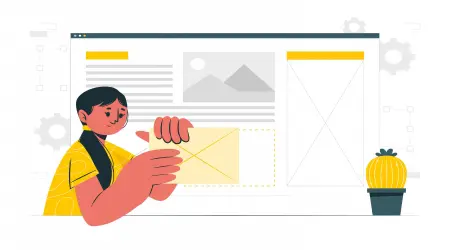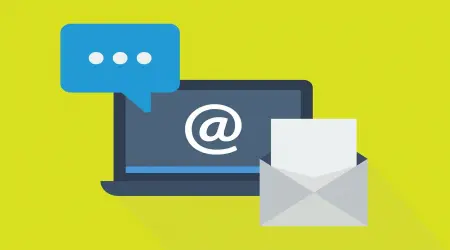

11 Best Email Marketing Services in 2025 (For Beginners to Pros)
11 Best Email Marketing Services in 2025 (For Beginners to Pros)
Looking to grow your business, boost engagement, or simply keep in touch with your audience? Email marketing is still one of the most powerful tools out there — when done right.
As someone with 5 years of SEO experience and a deep understanding of E-E-A-T (Experience, Expertise, Authoritativeness, and Trustworthiness), I’ve tested and worked with a variety of email marketing platforms over the years. Whether you're running a small blog or managing a large eCommerce brand, there’s an email marketing service out there that fits your goals (and budget).
In this guide, I’ll walk you through 11 trusted email marketing platforms that stand out in 2025 for their features, ease of use, and reliability.
Let’s get into it!
1. Mailchimp
✅ Best for: Beginners & small businesses
Mailchimp is often the first name people hear when diving into email marketing — and for good reason. It’s user-friendly, offers great templates, and includes built-in automation tools even on the free plan.
Pros:
Free plan for up to 500 subscribers
Easy drag-and-drop editor
Great analytics and A/B testing
Cons:
Gets pricey as your list grows
Limited automation on lower tiers
2. ConvertKit
✅ Best for: Creators, bloggers, and coaches
ConvertKit is built specifically for content creators. It’s incredibly simple to use and focuses on email funnels and audience tagging, which makes targeting the right people super easy.
Pros:
Excellent for building email courses and drip campaigns
Simple, clean UI
Landing page builder included
Cons:
Not ideal for advanced eCommerce needs
Pricier than some competitors
3. ActiveCampaign
✅ Best for: Advanced automation & segmentation
ActiveCampaign is a powerhouse. It’s ideal for businesses that want deep automation workflows and smart segmentation to drive personalized marketing.
Pros:
Robust automation builder
CRM integration
Email + SMS marketing
Cons:
Can be overwhelming for beginners
No free plan (14-day trial only)
4. Brevo (formerly Sendinblue)
✅ Best for: Transactional emails + automation
Brevo is a great all-in-one platform for email, SMS, live chat, and marketing automation. It’s also one of the few services that let you send transactional emails and newsletters from the same platform.
Pros:
Email + SMS marketing
Affordable pricing
No contact limit — pricing based on emails sent
Cons:
Template builder isn’t as modern
Limited reporting on the free plan
5. GetResponse
✅ Best for: Webinars + landing pages
GetResponse offers more than email — it includes webinar hosting, landing page creation, and even a website builder. It’s a great choice for marketers who want to keep everything in one place.
Pros:
Built-in webinar tool
Excellent for lead generation
Automation templates available
Cons:
Free plan is limited
Slightly steeper learning curve
6. Moosend
✅ Best for: Budget-friendly automation
Moosend might not be as well-known as Mailchimp or ActiveCampaign, but it offers surprisingly powerful automation tools at a much lower price.
Pros:
Affordable for small businesses
Advanced automation included in all plans
Simple interface
Cons:
Smaller email template library
Limited integrations compared to larger platforms
7. MailerLite
✅ Best for: Clean design + simplicity
MailerLite is a favorite among startups and freelancers for its intuitive interface, modern templates, and strong free plan. If you love a minimalist approach, this one’s for you.
Pros:
Generous free plan (up to 1,000 subscribers)
Beautiful email templates
Easy-to-use automation and landing pages
Cons:
Approval process can take time
Lacks advanced CRM features
8. AWeber
✅ Best for: Reliable service with great support
AWeber has been around since 1998 and still holds its own with consistent delivery, solid support, and straightforward features.
Pros:
Good deliverability
Helpful customer support
Tons of email templates
Cons:
Interface feels outdated
Pricing isn’t as competitive
9. Omnisend
✅ Best for: eCommerce stores (Shopify, WooCommerce, BigCommerce)
If you're running an online store, Omnisend is tailor-made for you. It comes packed with eCommerce-friendly features like cart abandonment emails, product recommendations, and more.
Pros:
Seamless eCommerce integrations
Pre-built workflows for cart recovery
SMS + push notification support
Cons:
Less suited for non-eCommerce businesses
Advanced features mostly in paid tiers
10. Benchmark Email
✅ Best for: Simple campaigns & global reach
Benchmark Email is great for teams looking for multi-language support and easy-to-use features. It’s sleek, straightforward, and perfect for global businesses.
Pros:
Multilingual interface
Easy-to-use campaign builder
Responsive templates
Cons:
Limited advanced automation
Free plan has branding
11. Drip
✅ Best for: eCommerce automation + behavior-based targeting
Drip focuses on eCommerce brands that want advanced automation, segmentation, and customer journeys tailored to shopping behavior.
Pros:
Built for online stores
Personalized product recommendations
Smart workflows and revenue tracking
Cons:
Expensive for small businesses
Requires more setup and strategy
✅ Final Thoughts: Which Email Marketing Tool Is Right for You?
Here’s a quick cheat sheet:
| Need | Recommended Platform |
|---|---|
| Just starting out | Mailchimp or MailerLite |
| Creators & bloggers | ConvertKit |
| Advanced automation | ActiveCampaign |
| Transactional emails | Brevo |
| eCommerce brands | Omnisend or Drip |
| Budget option | Moosend |
| All-in-one suite | GetResponse |
At the end of the day, the best email marketing service is the one that fits your goals, team, and audience.
Pro Tip: No matter which platform you choose, always focus on building an engaged list, offering value, and staying consistent. That’s where the real ROI comes from.

